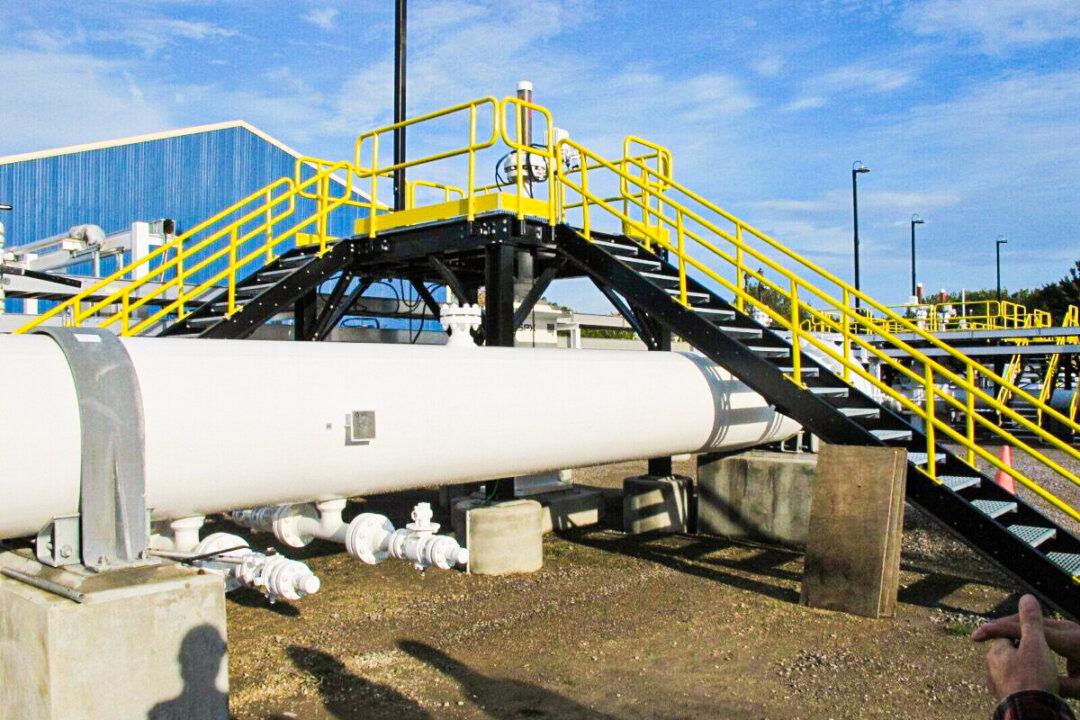The Biden administration is reviewing shutting a pipeline in Michigan after anonymously sourced reports said federal officials were quietly studying its potential environmental impact, a White House spokeswoman confirmed on Nov. 8.
When pressed by a reporter during a news conference, White House deputy press secretary Karine Jean-Pierre disputed reports saying President Joe Biden was going to terminate Enbridge Inc.’s Line 5 pipeline, which stretches from Canada into Michigan. However, she conceded that the Army Corps of Engineers was reviewing the matter.





